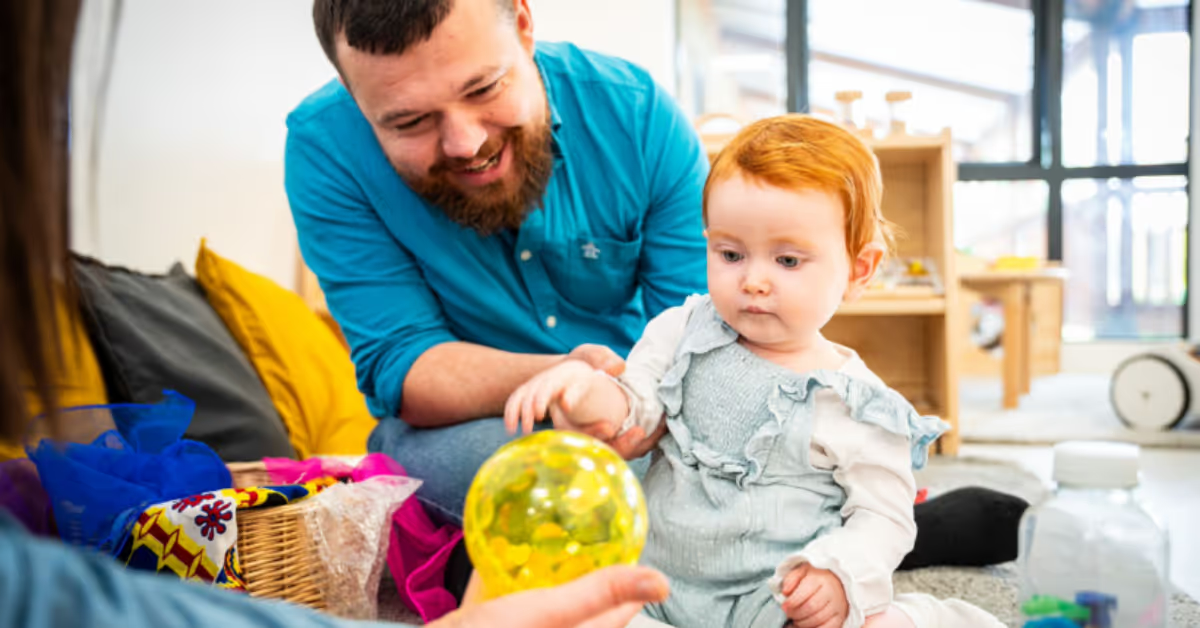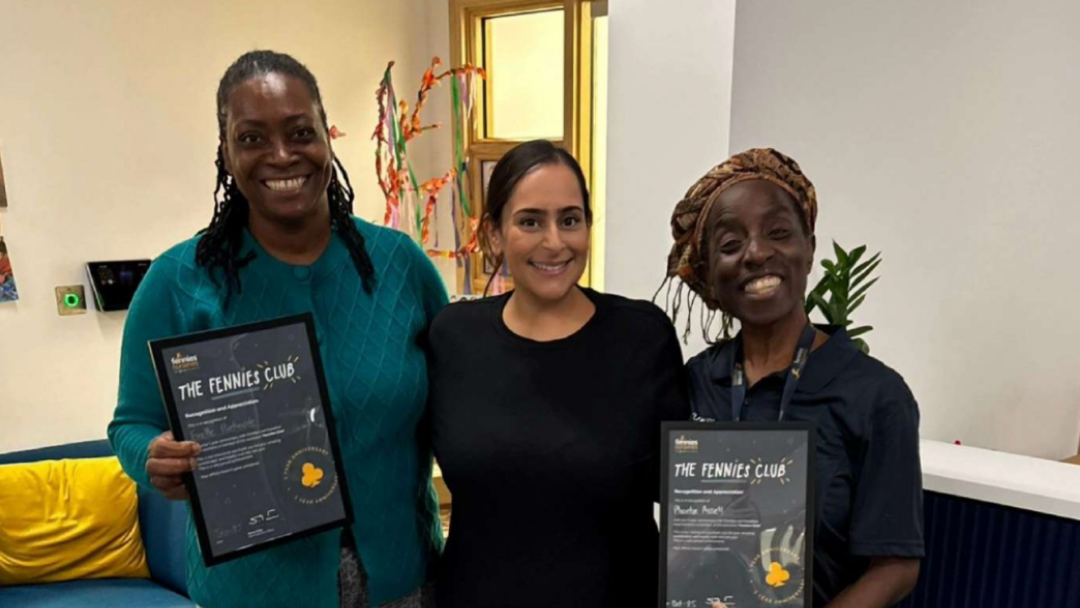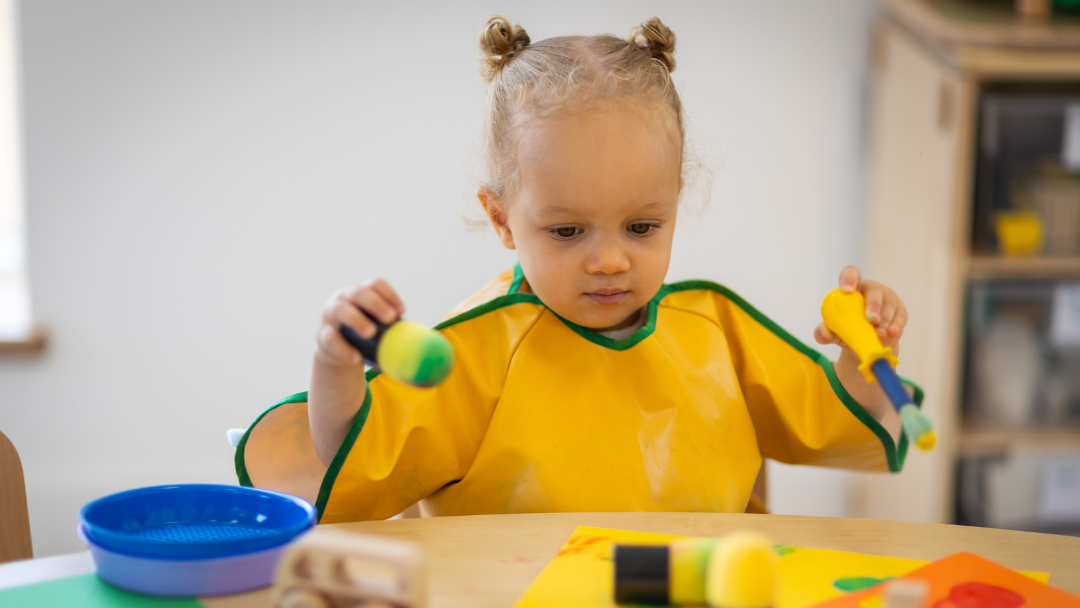Our Director of Early Years Rageena explores developmental milestones for children.
From the moment a child is born, parents embark on a journey filled with wonder, joy, and occasional uncertainty. Understanding the milestones of childhood development is vital for parents and caregivers to provide the necessary support during these formative years.
Childhood development is a fascinating journey, marked by many milestones, each contributing to the growth of a child. However, it's important to understand that children do not follow a one-size-fits-all trajectory. Their unique development path is influenced by a complex interplay of genetics, experiences, and interactions.
In our information-rich age, we have access to a wealth of literature on child development. Books, articles, and online resources provide valuable insights into typical milestones, developmental stages, and strategies for nurturing children's growth. However, every child is an individual with their own strengths, challenges, and pace of development. While these resources can of course provide helpful guidance, it should not serve as a strict roadmap or cause for undue concern if a child's progress deviates from the ‘norm’.
The Early Years Foundation Stage (EYFS) is a framework that outlines the standards for the learning, development, and care of children from birth to five years old. It sets out the key areas of learning and development that are crucial for children during this stage of their lives; personal, social, and emotional development; physical development; communication and language; literacy; mathematics; understanding the world; and expressive arts and design.
By understanding and engaging with these areas, parents and educators gain insights into a child's growth and can provide tailored support.

Personal, Social, and Emotional Development
From the earliest days, infants begin forming bonds with caregivers, showcasing trust and seeking comfort. As they progress, children develop a sense of self-identity, empathy, and emotional regulation. Parents and other key family members or adults play a pivotal role in nurturing these aspects by providing a supportive environment, engaging in play, and modelling positive social interactions.
Physical Development
Physical development encompasses both gross and fine motor skills, progressing from reflexive movements to purposeful actions like crawling, walking, and grasping objects. Parents can encourage physical development through activities such as tummy time, safe exploration, and providing age-appropriate toys that promote movement and coordination.
Communication and Language
Language acquisition begins early, with babies communicating through cries, gestures, and babbling before progressing to spoken words. Reading to children, engaging in conversation, and exposing them to diverse language experiences are essential for growing strong communication skills.

Literacy
Early literacy experiences, including shared book reading, lay the foundation for reading and writing skills. Parents can support literacy development by creating a print-rich environment at home, engaging in literacy activities, and nurturing a love for storytelling.
Mathematics
Mathematical understanding starts with basic concepts like counting, sorting, and recognising patterns, which are reinforced through everyday experiences and play. Incorporating mathematical concepts into daily routines and activities helps children develop a foundational understanding of math.
Understanding the World
Exploring the environment and making sense of the natural and social world are integral aspects of childhood development. Parents can encourage curiosity and exploration by exposing children to diverse experiences and fostering a sense of awe and wonder about the world around them.

Expressive Arts and Design
Creative expression through art, music, and imaginative play allows children to explore their creativity and develop self-expression. Providing access to art materials, encouraging creative exploration, and valuing children's unique ideas support their artistic development.
Contrary to popular belief, development across any of these areas is not always a linear progression from one milestone to the next. While certain skills typically emerge in a sequential manner, children may occasionally "skip" stages or demonstrate abilities at different times than expected.
For example, a child may excel in language acquisition but struggle with motor skills, or vice versa. Additionally, developmental delays or regressions can occur due to various factors, including health issues, environmental stressors, or simply the unique pace at which a child learns and grows.
In moments of uncertainty or concern about a child's development, seeking professional guidance can provide reassurance and support. Pediatricians, developmental specialists, and early childhood educators possess expertise in assessing children's growth and identifying any areas of concern.
Consulting with these professionals can offer valuable insights, personalised recommendations, and peace of mind for parents and caregivers. Whether addressing developmental delays, behavioural challenges, or simply seeking guidance on fostering a supportive environment for growth, professionals can offer tailored support to meet the unique needs of each child.
By recognising the individuality of each child's developmental journey and embracing the complexities therein, parents and caregivers can provide an environment of support and understanding. Through responsive caregiving, meaningful interactions, and access to professional guidance when needed, we can empower children to thrive and reach their full potential on their unique paths of growth and discovery.
FAQ
Subscribe to our newsletter
Stay up to date with Fennies news







.png)


